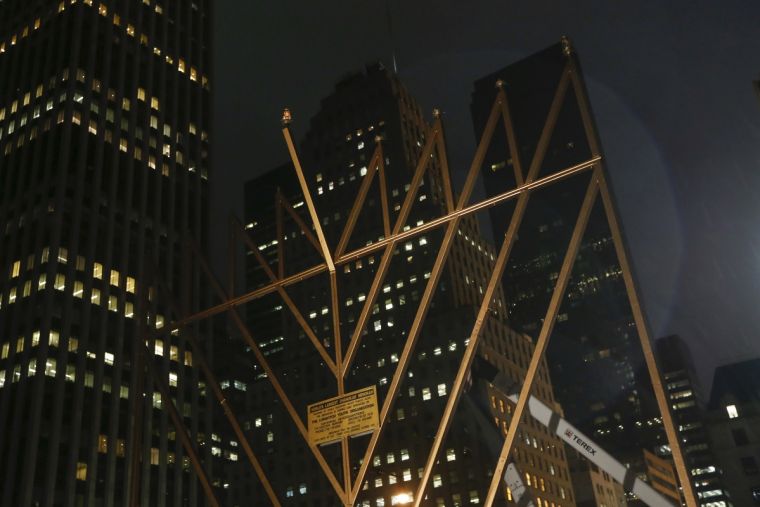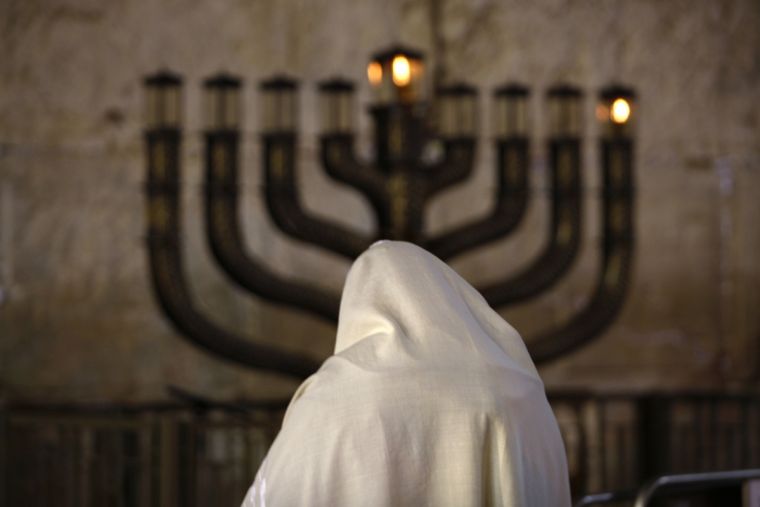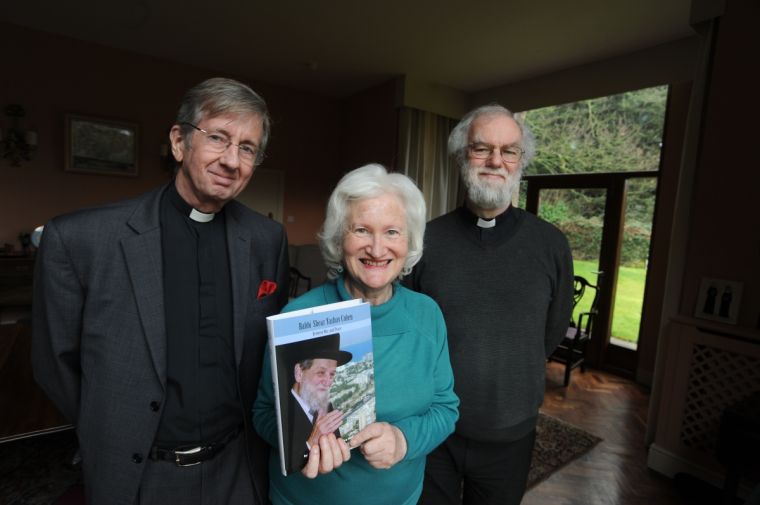The 8 things you need to know about the 8 days of Chanukah
Here are eight things you need to know about the eight days of Chanukah which started last night:
1) In around 166 BCE, the Hellenized Seleucid Syrians under Antiochus Epiphanes ('G-d Manifest') defiled the Temple of Jerusalem the capital city of the Jew. They did this by contaminating the oil used to light the Menorah and sacrificing pigs to their own gods. When the Maccabee family decided to take action to safeguard their capital city, their Temple and their religion, they found one small jar of oil unopened, which miraculously lasted for eight days – hence the festival of Chanukah. The Maccabees later became the Hasmonean dynasty.

2) As is normal in Jewish history, the main struggle for the Jews who wanted to remain Jewish was with those Jews who wanted to remain Hellenized. To remain Hellenized meant to take part in the Olympic games, worship the body and discard the biblical values of Judaism as manifest in the Bible and rabbinic commentaries.
3) Olive oil is used to anoint the sacred. Both King David and King Solomon were anointed with olive oil, as is the monarch in this country. However, in Judaism anointing with oil does not purify the person. If the person is already tainted (whether monarch or not), no amount of oil will get rid of the stain, and that is what Chanukah is all about. The menorah we light today has eight candles, one for each day of the miracle of the oil. The Hebrew word for oil is 'shemen'. The word for 8 is connected: 'shemoneh'.
4) The importance of oil to the festival is the reason for using oil in festive foods, such as latkes, doughnuts and kugels. In Hebrew doughnuts are known as 'sufganiot'
5) The 4-sided spinning tops for children known as dreidels in Yiddish and as sevivon in Hebrew were used as a subversive toy to fool the powers-that-be over more than 2000 years. The authorities forbade the Jewish people to commemorate the festival or to study Torah. The Hebrew letters on the sevivon stand for 'A great miracle happened here'.
6) The festival starts on the 25th of the Hebrew month of Kislev (no connection whatsoever with Christmas), which falls any time from late November till late December.
7) The original menorah had 7 prongs as specified by G-d to Moses in Exodus 25. One such can be seen in Titus' triumphalist Arch in Rome, after he had sacked Jerusalem and destroyed the Temple in the year 70 CE, when the Jews were exiled from their capital city and either murdered by him or enslaved.
8) You need 44 candles to celebrate the 8 days of Chanukah – it being eventually decided that the number of candles lit at home should be increased by one every day.

Exactly 40 years ago in 1977 the Lubavitcher Rebbe persuaded the American political authorities for whom the separation between Church and State is normally paramount that Chanukah is about the divine in life – and not about a specific religion. He successfully argued that American values at best are also Jewish values and that to display the Chanukah menorah in public places was not a ploy to convert Americans to any particular religion.
So now menorahs are lit all over the world. Last night menorahs were lit at the White House, the Eiffel Tower, the Kremlin and the Brandenburg Gate.
As in previous years, Trafalgar Square hosted a 30 foot menorah outfitted and specially designed with environmentally friendly bulbs, commissioned by the London Climate Change Agency.
The world's largest menorah, standing 36 feet high, was lit as usual just outside Central Park in New York City. And here in Broughton Park, Salford, just as all over the State of Israel, vehicles sporting 8-pronged menorahs could be seen and heard lighting up the cold and snow-laden streets, bringing the good news of Chanukah to all and sundry.
In Binyamina, a small hamlet in the State of Israel, my two young grandchildren skyped to thank me for my gifts of the first Harry Potter book and the story of Robin Hood (the grandson is into archery).
So the moral of Chanukah is that there are two ways of destroying a people. There is genocide pure and simple (that is the Persian story of the Book of Esther, read at Purim in February/March). The other, more subtle, and therefore more difficult to deal with, entails fighting, but knowing what you are fighting for.
The word 'Adam' in Hebrew does not mean 'person' as in English. In English a 'person' (from the Latin 'persona') is someone who masks their real feelings and often puts on an act.
Judaism is not about masks and putting on acts. Judaism is about unmitigated dedication and honesty. As long as the fighting is done to protect Jewish values, including purity in life, fighting is permitted.
This is how it was put by one of the greatest rabbis of the last 100 years. And I read this passage at the English-language book launch hosted and chaired by former Archbishop of Canterbury, Dr Rowan Williams, at Magdalene College Cambridge, February 1st this year in front of friends from Jerusalem, Haifa and all over England:
'Chanukah has come around again and all over Israel candles light up our doorways and windows. Once again, our hearts miss a beat as we recite the annual Chanukah blessing, thanking G-d "Who performed miracles for our ancestors..." We then add another blessing of gratitude to our Creator: "Who has kept us alive, helped sustain us and enabled us to reach this time."

'But I cannot help asking ... if our blessing is just empty words. Do we really mean what we say? Deep down, are we truly grateful to G-d for helping us to "reach this time"? Let's listen hard to what our Chanukah candles are telling us about this difficult year we have experienced....'
'The sputtering flames hold a secret... In the doorways and windowsills, our Chanukah lights flicker, telling the story of Zion.... Our own dimming Chanukah flames also remind us of another, brighter flame: the flame of liberation which led us to rebuild our Holy Land, the land in which our roots are embedded. Although the light is covered with dust, the odd flicker gets through here and there.... They whisper to us in burning anguish....
'Let us therefore join in blessing our Creator for having "kept us alive and helped sustain us" from the Hasmonean era up to this very day. Let us thank Him for the heroism of the Hasmoneans that has not left us. Let us recite together a blessing for the sparks of light that glow even in the embers of our darkness. Let's give thanks for even the tiniest scintilla of heroism wherever it appears.
'Let's praise G-d for the heroism of the State of Israel and the Jewish people ... and for the Holy Land that they love, the Land that has been promised by G-d to us and to the generations that will come after us, forever.'
The moral of Chanukah is that, ironically, sometimes you have to be prepared to fight in order to obtain genuine peace.
Happy Chanukah.
Dr Irene Lancaster is a Jewish academic, author and translator who has established university courses on Jewish history, Jewish studies and the Hebrew Bible.











